Online proceedings for the HCI SI 2024 conference are now available.
Category Archives: Uncategorized
HCI-SI 2024 programme
The programme of the HCI-SI 2024 is available.
The conference is free to attend. Attendees cover their own expenses to reach the venue.
Registration is necessary: https://forms.gle/GQaMUkYHEPpXyFaFA.
Location:
UL FRI – Faculty of Computer and Information Science, University of Ljubljana
Lecture room: Diplomska soba
Address: Večna pot 113, 1000 Ljubljana, Slovenia
PROGRAMME
8:30 – 9:00 Gathering
9:00 – 9:10 Welcome (Luka Čehovin Zajc)
9:10 – 9:45 Keynote: Understanding and Managing Quality of Experience for Emerging XR Services (Lea Skorin-Kapov, University of Zagreb)
Emerging eXtended Reality (XR) technologies have been recognized as a key enabler for the design of novel immersive experiences, often relying on the fusion of the digital and physical worlds. In particular, social and collaborative XR services enabling users to meet and interact in immersive environments have the potential of leading to an evolutionary step in communication services. Given service complexity, the availability of new hardware appearing on the market, and new application domains, the research community is faced with the challenges of exploring new methodologies, models, and metrics to understand and manage what we refer to as the Quality of Experience (QoE) or user experience (UX). UX/QoE research has thus received much attention over the past years and has become a prominent issue addressed by network, service, and content providers. Addressing these research challenges inherently calls for a highly multidisciplinary approach, combining expertise from disciplines such as engineering and networking, psychology, cognitive science, and human-computer interaction. In this talk, we will discuss key technologies and infrastructures needed to meet the requirements of emerging XR services, as well as key challenges related to assessing and modeling QoE.
9:45 – 10:30 Paper session (chair: Veljko Pejović)
- Integrating Environmental Awareness into NPCs: Contextual Conversational Interaction in Games (Grega Radež and Ciril Bohak)
- Music and Myth: The Relationship Between Music Preference and Unverified Beliefs (Elena Spirova, Arsen Matej Golubovikj and Marko Tkalčič)
- The Role of Energetic Music in Video Game Immersion: Analyzing its Effect on Engagement and Performance Distraction (Teodor Kostovski, Matjaž Kljun and Klen Čopič Pucihar)
10:30 – 11:00 Coffee break
11:00 – 11:40 Keynote: Designing with Constraints: Real-Life UX Lessons (Amadea Derenda, Kaldi)
This talk explores the art of crafting effective user experiences when resources are limited, deadlines are tight, and teams are lean. Using real-world projects and case studies, we’ll dive into how UX principles adapt to practical constraints, what goes into the product lifecycle in non-academic settings, and the importance of securing stakeholder buy-in. Amedea will share insights how to balancing ideal UX practices with the realities of everyday challenges and the creativity it takes to make impactful design decisions, spanning from her 1/+ year career as a UX designer.
11:45 – 12:30 Paper session (chair: Ciril Bohak)
- UX Design: the Impacts on Physiological Responses (Natasa Miletic, Matjaž Kljun and Klen Čopič Pucihar)
- Guided by Steel: Teaching Shortest Path Algorithms with Robots and Overlaid Projections (Pavel Jolakoski, Jordan A. Deja, Matjaž Kljun and Klen Čopič Pucihar)
- Augmented Reality Training System Fusing the Triple Nature of Chemical Concepts (Maheshya Weerasinghe, Luka Ribič, Matjaž Kljun, Klen Čopič Pucihar and Iztok Devetak)
12:30 – 14:00 Lunch and Post-conference discussion
HCI SI 2024 conference [updated deadline]
The CfP for Human-Computer Interaction Slovenia conference 2024 edition, which will take place in November 2024 @ Faculty of Computer and Information Science, University of Ljubljana, is out and available HERE.
IMPORTANT DATES
- Submission deadline:
October, 6th 2024, October, 13th 2024 - Notification to authors:
October, 20th 2024, October, 27th 2024 - Conference: November 8th 2024
See you in Ljubljana on Friday, 8th November 2024.
Slovenia at ACM CHI 2024
The Slovene Human-Computer Interaction (HCI) community has been present at the CHI 2024 Conference on Human Factors in Computing Systems this year as well. Looking at CHI statistics and seeing HCI being ever more popular in Slovenia is exciting.


Four authors from Slovenia were co-authors on full papers submitted and two were successful. Researchers form the University of Maribor published this paper:
Bhattacharya, Aditya, Simone Stumpf, Lucija Gosak, Gregor Stiglic, and Katrien Verbert. “EXMOS: Explanatory Model Steering Through Multifaceted Explanations and Data Configurations.” In Proceedings of the CHI Conference on Human Factors in Computing Systems, pp. 1-27. 2024. https://dl.acm.org/doi/10.1145/3613904.3642106
In addition, Jordan Aiko Deja from the University of Primorska was a Global Inclusion and Equity co-chair together with Martina Schuß, Technische Hochschule Ingolstadt, Germany, and Aimée Sousa Calepso, University of Stuttgart, Germany.
HCI SI 2023 flashbacks
The 8th HCI SI conference took place on Friday, January 26, 2024, hosted at the University of Maribor, Faculty of Electrical Engineering and Computer Science. The program delved into a diverse array of topics within the field of Human-Computer Interaction (HCI). These included investigations into methods for evaluating driver’s situational awareness and enhancing the precision of proximity sensors for vehicle parking assistance, utilising augmented reality for visualizing human anatomy, enhancing digital content with 3D-printed physical counterparts, improving the learning process of piano improvisation, and various other subjects. The keynote address was delivered by Dr. Elisabeth Lex from Graz University of Technology. Her presentation, titled “Trustworthy Recommender Systems,” provided attendees with insights into how recent research and emerging regulations in AI technologies impact ethical considerations such as bias, fairness, and privacy in the development of recommender systems.
See you!
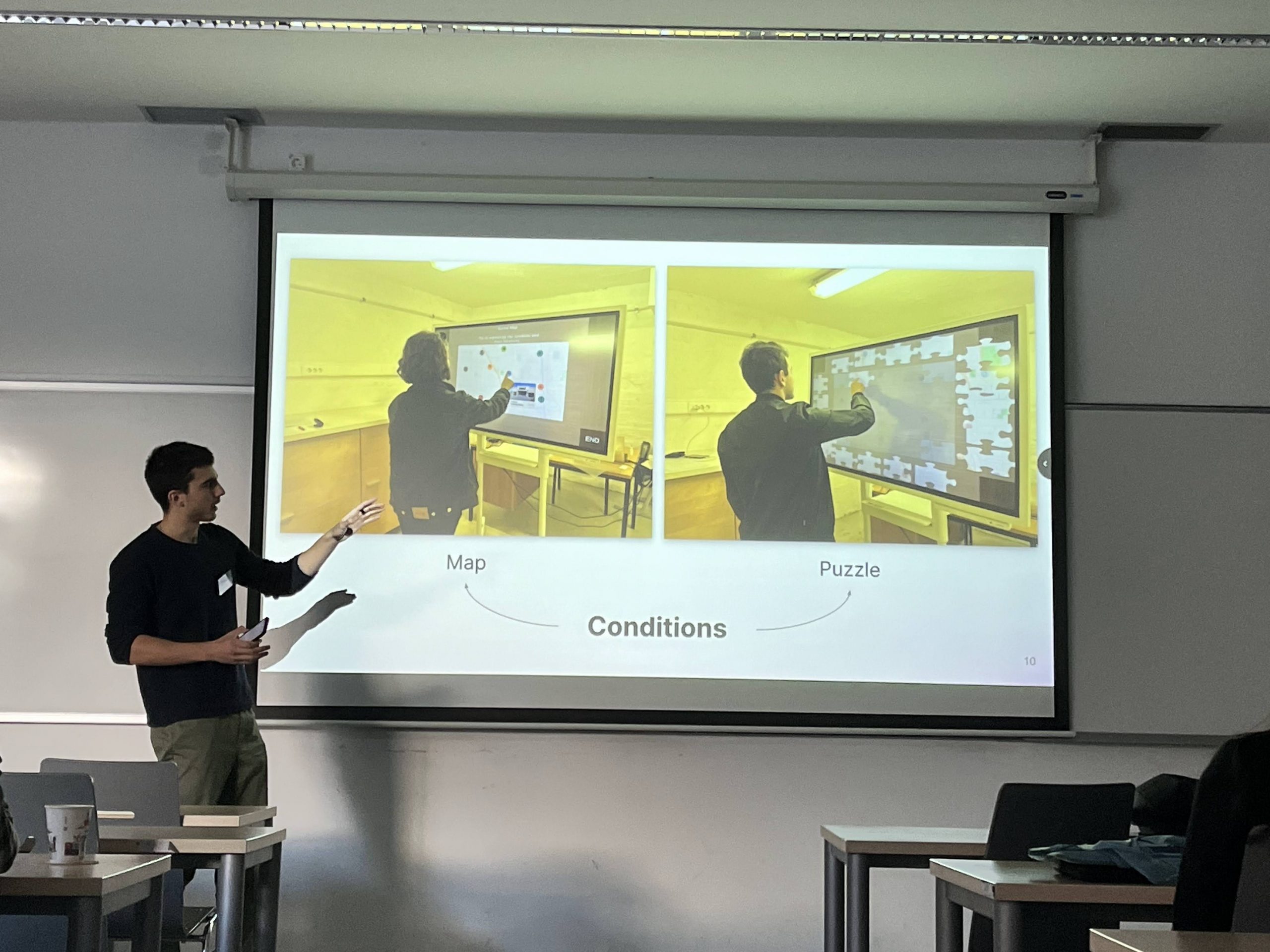
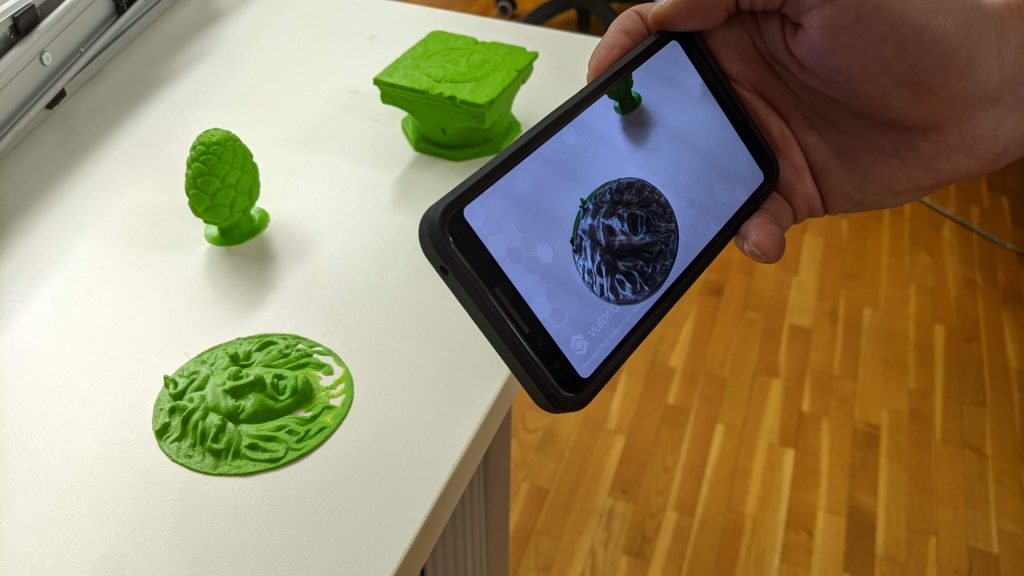
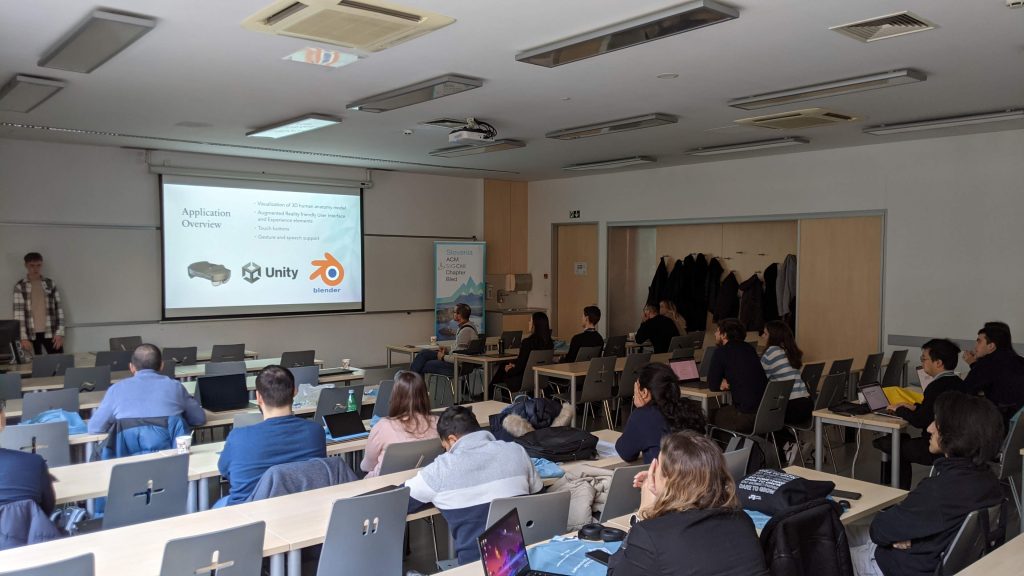
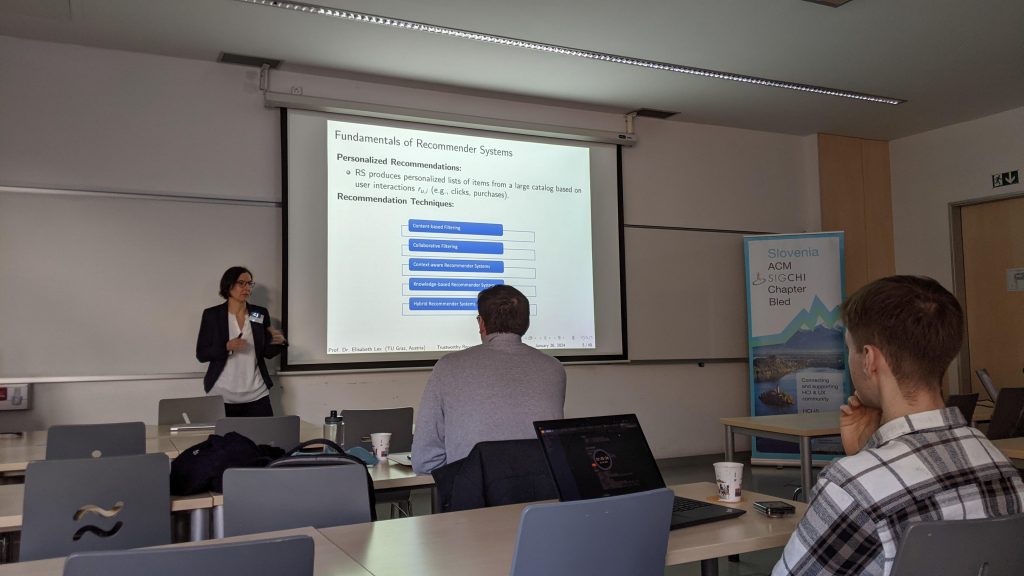
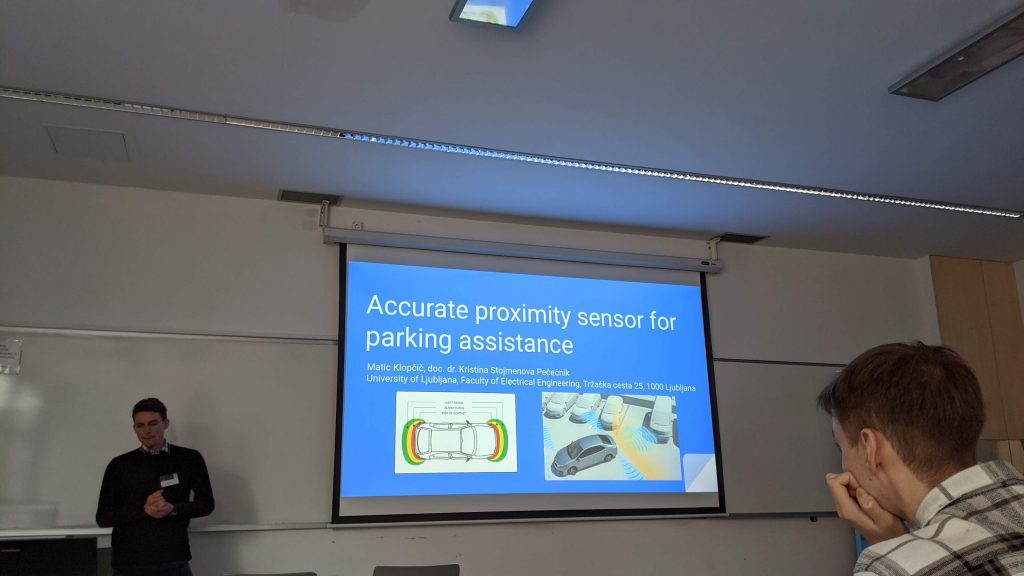
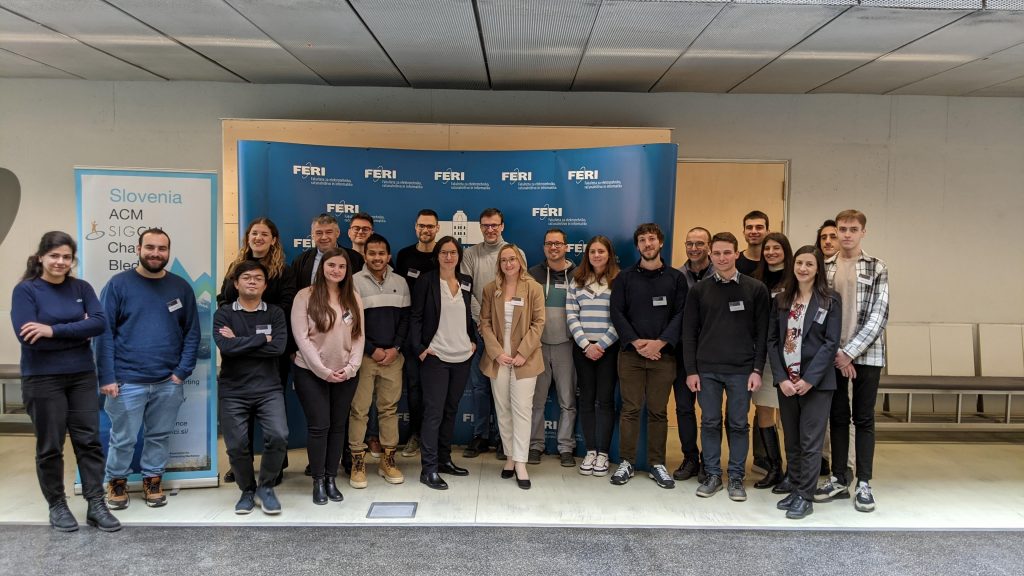
HCI SI 2023 programme
The programme of the HCI SI 2023 is available.
The conference is free to attend. Attendees cover their own expenses to reach the venue.
Registration is necessary: https://forms.gle/jqbbsnACmoxyeK6q6.
Location:
FERI Faculty of Electrical Engineering and Computer Science, University of Maribor
Lecture room G2-P01
Address: Koroška cesta 46, 2000 Maribor
PROGRAMME (detailed)
| 8:30-9:30 | Registration |
| Coffee break | |
| 9:30 – 9:40 | Welcome speech |
| 9:40 – 10:40 | Paper session 1 |
| Coffe break | |
| 10:55 – 11:55 | Keynote |
| Elisabeth Lex (Graz University) Trustworthy Recommender Systems |
|
| 12:00 – 13:00 | Paper session 2 |
| Coffe break | |
| 13:10 – 13:55 | Paper session 3 |
| 13:55 | Conference closing |
Keynote HCI SI 2023 by Dr. Elisabeth Lex: Trustworthy Recommender Systems
Happy to present the HCI SI 2023 keynote speaker Elizabeth Lex. Elisabeth is a Computer Science professor at Graz University of Technology, where she heads the Recommender Systems and Social Computing Lab. Her main expertise includes machine learning, data science, recommender systems, and natural language processing.
Abstract
Recommender systems play a pivotal role in shaping our digital experiences, influencing the content we see online, the products we consider purchasing, and the entertainment choices we make, such as which movies to watch. The increased adoption of deep learning technologies in recommender systems, while enhancing their effectiveness, has also raised substantial concerns regarding their transparency and trustworthiness. Critical issues such as bias, fairness, and privacy are increasingly coming under scrutiny, both in public discourse and academic research. In response, there’s a growing momentum in developing recommender systems that are not only efficient but also uphold these ethical standards.
In this talk, we will discuss recent work to address concerns of bias, fairness, and user privacy in recommender systems and briefly touch upon recent regulatory frameworks to govern AI technologies.
Call to Action
Mark your calendars and don’t miss this opportunity to gain insights from a leader in AI and recommender systems. Join us to explore how we can shape a more trustworthy digital future.
HCI SI 2023 conference (in 2024)
The CfP for Human-Computer Interaction Slovenia conference 2023 edition (which will take place in 2024 @ University of Maribor) is out and available HERE.
IMPORTANT DATES
- Submission deadline:
22 December 202329 December 2023 - Notification to authors: 15 January 2024
- Conference: 26 January 2024
See you in Maribor on Friday 26 January 2024.
Slovenia at ACM CHI 2023
The Slovenian HCI community was present at CHI 2023 with the following contributions:
Good Day Manager! Exploring Social Relationships In NFT-based Play-to-Earn Games
Richard Lance Parayno (Paris-Lodron University of Salzburg, Salzburg University of Applied Sciences)
Janna Aika Deja (University of Siegen)
Tyrone Justin Sta. Maria (De La Salle University)
Briane Paul V. Samson (De La Salle University)
Jordan Aiko Deja (De La Salle University, University of Primorska)
Interactive Paper Displays: Enabling Digital Functionalities on Physical Paper
Cuauhtli Campos (University of Primorska, Innorenew CoE)
Matjaž Kljun (University of Primorska, Faculty of Information Studies)
Jakub Sandak (InnoRenew CoE)
Klen Čopič Pucihar (University of Primorska, Faculty of Information Studies)
Jordan was also a Global Inclusion and Equity co-Chair together with Cuauhtémoc Rivera Loaiza, Universidad Michoacana, and Marisol Wong-Villacres, Escuela Superior Politécnica del Litoral
HCI IS 2021 schedule
| From | To | Location | |
| 09:00 | 09:45 | Avla Galeb | REGISTRATION |
| 09:45 | 10:00 | Avla Galeb | Welcome by the Chairs |
| 10:00 | 11:00 | Avla Galeb | SESSION 1: Opening Keynote (Chair: Matjaž Kljun) |
| 10:00 | 11:00 | Keynote: Gregor Geršak | |
| 11:00 | 11:30 | Avla Galeb | POSTER/COFFEE BREAK |
| 11:30 | 12:30 | Avla Galeb | SESSION 2: Papers (Chair: Veljko Pejović) |
| 11:30 | 11:45 | Elham Motamedi and Marko Tkalcic. Prediction of Eudaimonic and Hedonic Movie Characteristics From Subtitles | |
| 11:45 | 12:00 | Mateja Jovanović, Vida Groznik and Marko Tkalčič. Predicting the Gullibility of Users from their Online Behaviour. | |
| 12:00 | 12:15 | Patrik Kocjančič, Kljun Matjaž and Klen Čopič Pucihar. Primerjava vnosa besedila v virtualnem okolju na različnih postavitvah tipkovnice (Comparison of text entry on dierent keyboard layouts in virtual reality) | |
| 12:15 | 12:30 | Maheshya Weerasinghe, Klen Čopič Pucihar and Matjaž Kljun. Playing with the Artworks: A personalised artwork experience | |
| 12:30 | 14:30 | LUNCH BREAK | |
| 14:30 | 15:30 | Avla Galeb | SESSION 3: Papers (Chair: Klen Čopič Pucihar) |
| 14:30 | 14:45 | Anže Kristan, Daniel Pellarini and Veljko Pejović. Not Deep Enough: Autoencoders for Automatic Feature Extraction in Wireless Cognitive Load Inference | |
| 14:45 | 15:00 | Andraž Krašovec and Veljko Pejovic. Investigating Sensor Modality Informativeness and Stability for Behavioural Authentication | |
| 15:00 | 15:15 | Sead Hrustanović, Branko Kavšek and Marko Tkalčič. Recognition of eudaemonic and hedonic qualities from song lyrics | |
| 15:15 | 15:30 | Jose Maria Iii Santiago, Giselle Nodalo, Jolene Valenzuela and Jordan Aiko Deja. Explore, Edit, Guess: Understanding Novice Programmers’ Use of CodeBlocks for Regression Experiments | |
| 15:30 | 16:00 | Avla Galeb | POSTER/COFFEE BREAK |
| 16:00 | 17:00 | VP2 | SESSION 4: Closing Keynote (Chair: Marko Tkalčič) |
| 16:00 | 17:00 | Keynote: Peter Knees | |
| 17:00 | 18:00 | Panel/Wrap up |
